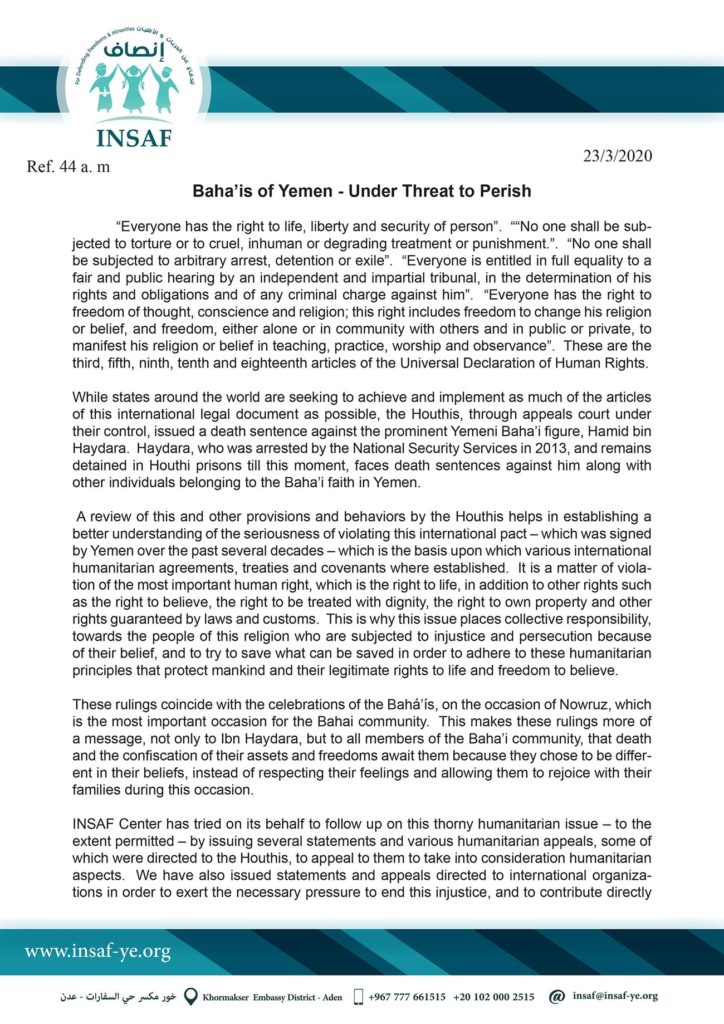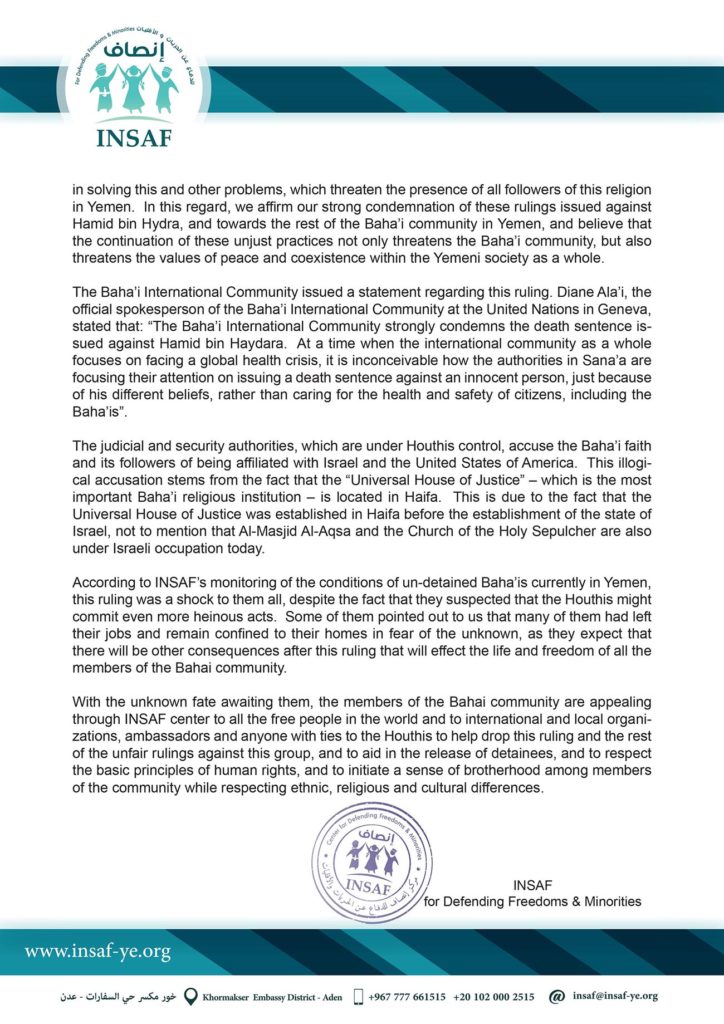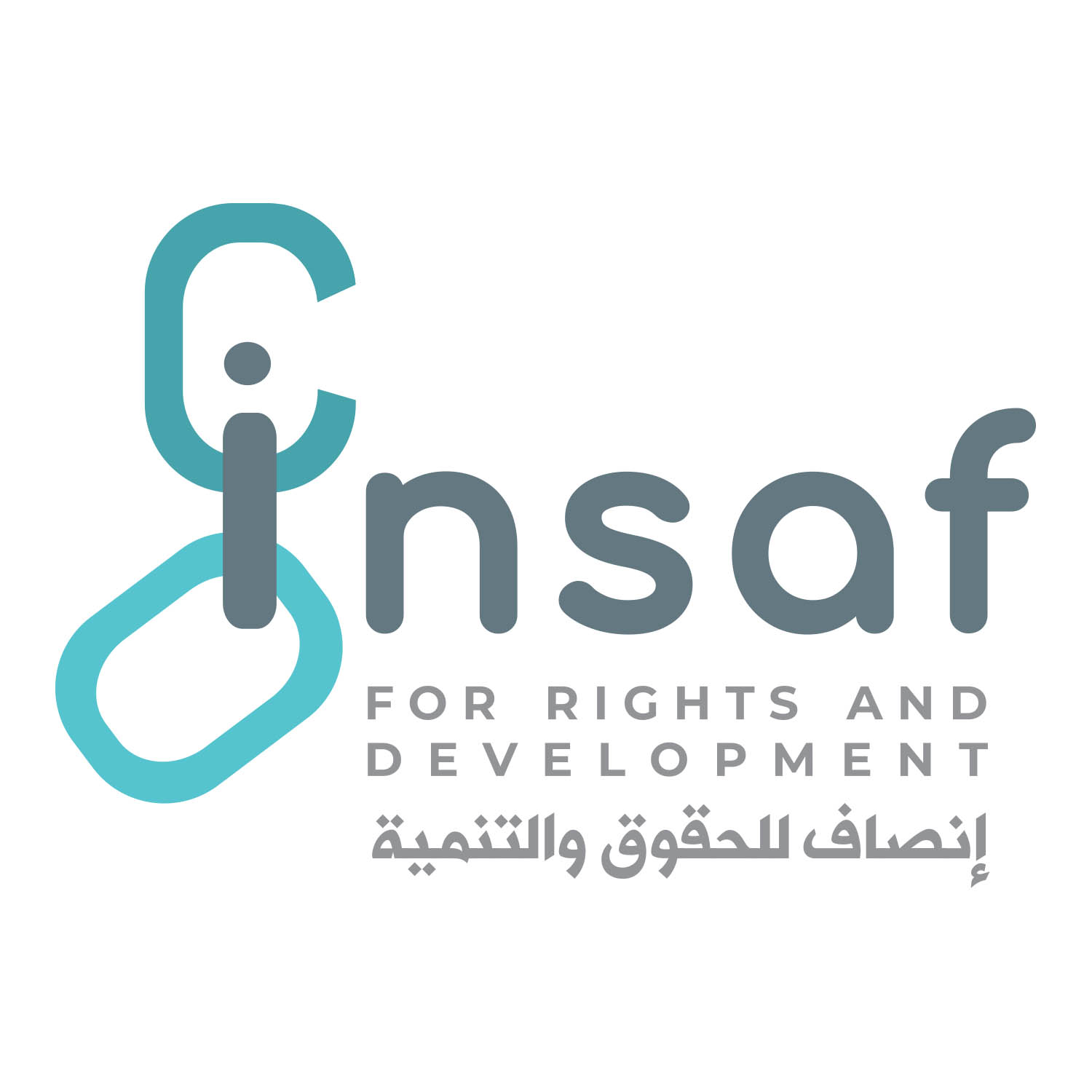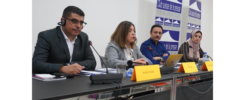“Everyone has the right to life, liberty and security of person”. ““No one shall be subjected to torture or to cruel, inhuman or degrading treatment or punishment.”. “No one shall be subjected to arbitrary arrest, detention or exile”. “Everyone is entitled in full equality to a fair and public hearing by an independent and impartial tribunal, in the determination of his rights and obligations and of any criminal charge against him”. “Everyone has the right to freedom of thought, conscience and religion; this right includes freedom to change his religion or belief, and freedom, either alone or in community with others and in public or private, to manifest his religion or belief in teaching, practice, worship and observance”. These are the third, fifth, ninth, tenth and eighteenth articles of the Universal Declaration of Human Rights.
While states around the world are seeking to achieve and implement as much of the articles of this international legal document as possible, the Houthis, through appeals court under their control, issued a death sentence against the prominent Yemeni Baha’i figure, Hamid bin Haydara. Haydara, who was arrested by the National Security Services in 2013, and remains detained in Houthi prisons till this moment, faces death sentences against him along with other individuals belonging to the Baha’i faith in Yemen.
A review of this and other provisions and behaviors by the Houthis helps in establishing a better understanding of the seriousness of violating this international pact – which was signed by Yemen over the past several decades – which is the basis upon which various international humanitarian agreements, treaties and covenants where established. It is a matter of violation of the most important human right, which is the right to life, in addition to other rights such as the right to believe, the right to be treated with dignity, the right to own property and other rights guaranteed by laws and customs. This is why this issue places collective responsibility, towards the people of this religion who are subjected to injustice and persecution because of their belief, and to try to save what can be saved in order to adhere to these humanitarian principles that protect mankind and their legitimate rights to life and freedom to believe.
These rulings coincide with the celebrations of the Bahá’ís, on the occasion of Nowruz, which is the most important occasion for the Bahai community. This makes these rulings more of a message, not only to Ibn Haydara, but to all members of the Baha’i community, that death and the confiscation of their assets and freedoms await them because they chose to be different in their beliefs, instead of respecting their feelings and allowing them to rejoice with their families during this occasion.
INSAF Center has tried on its behalf to follow up on this thorny humanitarian issue – to the extent permitted – by issuing several statements and various humanitarian appeals, some of which were directed to the Houthis, to appeal to them to take into consideration humanitarian aspects. We have also issued statements and appeals directed to international organizations in order to exert the necessary pressure to end this injustice, and to contribute directly in solving this and other problems, which threaten the presence of all followers of this religion in Yemen. In this regard, we affirm our strong condemnation of these rulings issued against Hamid bin Hydra, and towards the rest of the Baha’i community in Yemen, and believe that the continuation of these unjust practices not only threatens the Baha’i community, but also threatens the values of peace and coexistence within the Yemeni society as a whole.
The Baha’i International Community issued a statement regarding this ruling. Diane Ala’i, the official spokesperson of the Baha’i International Community at the United Nations in Geneva, stated that: “The Baha’i International Community strongly condemns the death sentence issued against Hamid bin Haydara. At a time when the international community as a whole focuses on facing a global health crisis, it is inconceivable how the authorities in Sana’a are focusing their attention on issuing a death sentence against an innocent person, just because of his different beliefs, rather than caring for the health and safety of citizens, including the Baha’is”.
The judicial and security authorities, which are under Houthis control, accuse the Baha’i faith and its followers of being affiliated with Israel and the United States of America. This illogical accusation stems from the fact that the “Universal House of Justice” – which is the most important Baha’i religious institution – is located in Haifa. This is due to the fact that the Universal House of Justice was established in Haifa before the establishment of the state of Israel, not to mention that Al-Masjid Al-Aqsa and the Church of the Holy Sepulcher are also under Israeli occupation today.
According to INSAF’s monitoring of the conditions of un-detained Baha’is currently in Yemen, this ruling was a shock to them all, despite the fact that they suspected that the Houthis might commit even more heinous acts. Some of them pointed out to us that many of them had left their jobs and remain confined to their homes in fear of the unknown, as they expect that there will be other consequences after this ruling that will effect the life and freedom of all the members of the Bahai community.
With the unknown fate awaiting them, the members of the Bahai community are appealing through INSAF center to all the free people in the world and to international and local organizations, ambassadors and anyone with ties to the Houthis to help drop this ruling and the rest of the unfair rulings against this group, and to aid in the release of detainees, and to respect the basic principles of human rights, and to initiate a sense of brotherhood among members of the community while respecting ethnic, religious and cultural differences.





